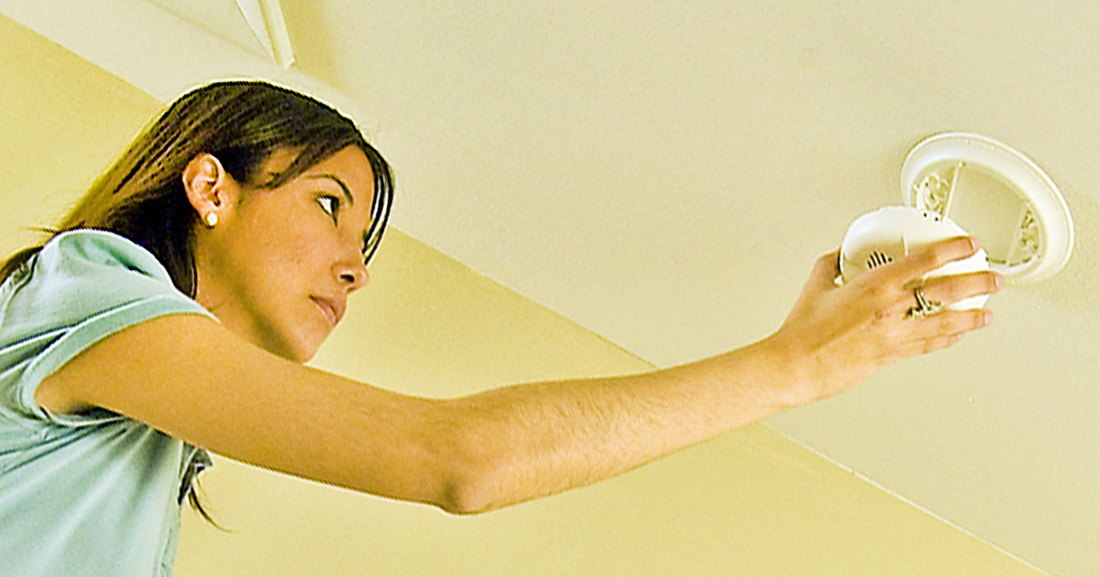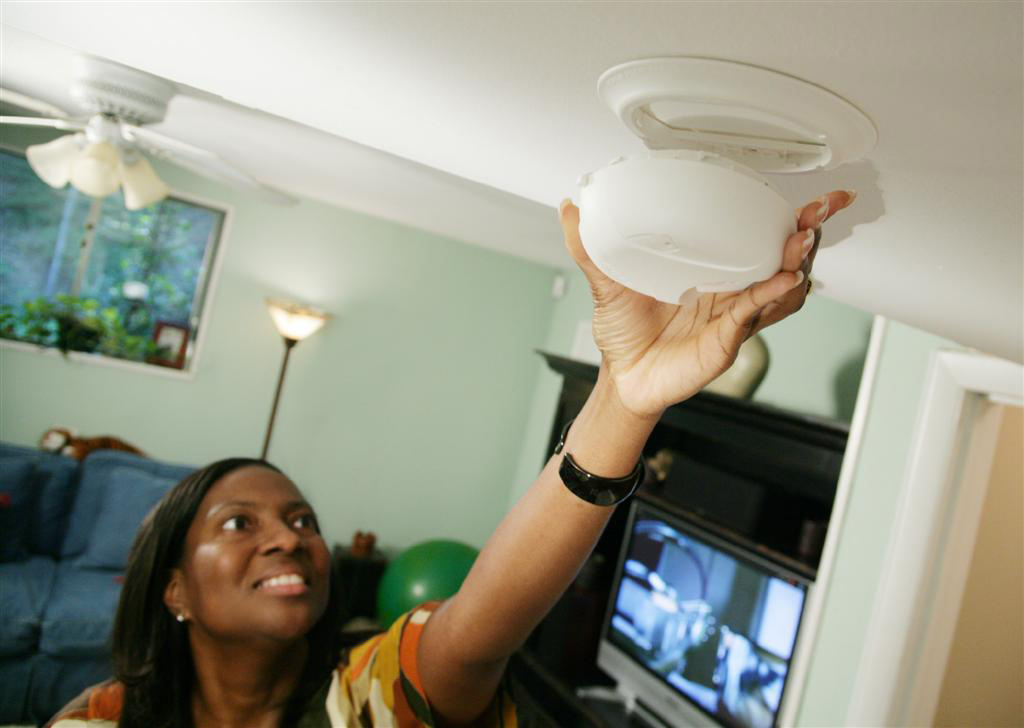Time Change Brings Alarm Check
It's easy to remember - check your fire and smoke alarms twice a year when the time changes and you'll be protecting property - and lives!
- by Chief Pam San Fillippo
Historians debate the actual causes of each fire (Mrs. O’Leary’s cow might just be innocent!), but there is no debating the devastation that resulted from each. These two catastrophic events caused the fire service and public officials to change their perception of “public safety”: Fire Prevention Week was born, becoming the longest running public health and safety observance on record. Each year during the week of October 9th the fire service recognizes Fire Prevention Week and makes an extra effort to educate the public about fire and life safety.
These fires are ancient history to most of us, but devastating fires still occur. In fact, home fires kill an average of 8 people each day and each year firefighters respond to over 350,000 house fires that result in $7 billion in direct damages. And these are statistics from residential fires — commercial and business, industrial, wildland, and forest fires aren’t included! Along with the loss of civilian lives, homes, forests, and businesses, fires will also kill about 100 firefighters every year (and injure or disable thousands more). One-hundred men and women who went to work one morning and never made it home because they were trying to save a building, a house, a patch of forest and sometimes, a life. More often than not these fires and deaths were completely preventable, if people had learned and followed the fire safety advice from the professionals and acted responsibly. So we ask you, please make sure that you and everyone in your family learns about fire safety and practice it every day. It literally can mean the difference between life and death for you and for us. We’ve said it for decades, and it still holds true today: 3 out of 5 home fire deaths happen from fires in homes with no smoke alarms or no working smoke alarms. That’s why we tell everyone: each year when the time changes, change your smoke alarm battery – for wired alarms, check your battery back-up and test your system. If you don’t know how, contact your fire department. We’ll be happy to help. Please join us in spreading the word about fire safety; learn about it, practice it, and take a moment to visit the National Fire Protection Association’s website. You’ll find a wealth of lifesaving information for consumers, educators and business owners: http://www.nfpa.org/safety-information/for-consumers Comments are closed.
|
Categories
All
Archives
July 2024
|
Shoofly Magazine Partners
Our Shoofly Partners are local businesses and organizations who share our mission to enrich community life in Bay St. Louis, Waveland, Diamondhead and Pass Christian. These are limited in number to maximize visibility. Email us now to become a Shoofly Partner!






























 RSS Feed
RSS Feed























